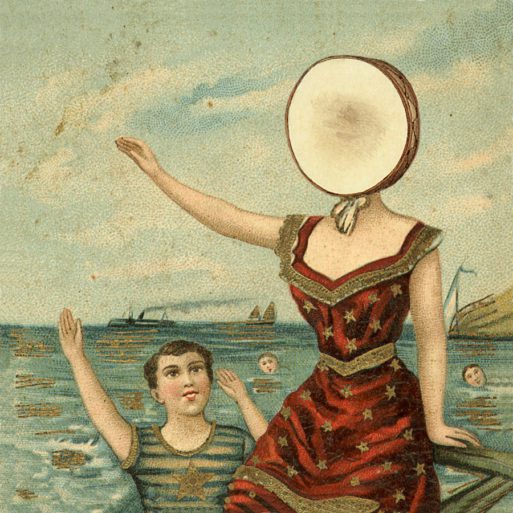 Jeff Mangum – singer, songwriter, auteur, recluse, and enigmatic frontman of late ‘90s indie outfit Neutral Milk Hotel – was inspired to write his magnum opus because of Anne Frank.
Jeff Mangum – singer, songwriter, auteur, recluse, and enigmatic frontman of late ‘90s indie outfit Neutral Milk Hotel – was inspired to write his magnum opus because of Anne Frank.
At least, that’s the theory espoused by the (many) fans of this cult-hit group, and lyrics which echo the diary of Anne Frank seem to confirm. Meanwhile, Mangum has little surfaced in the 14 years since NMH’s untimely demise, but this year fans of this cult-hit group (and there are many) have a reason to celebrate: Mangum has returned.
In the Aeroplane over the Sea (1998) was Neutral Milk Hotel’s second album, and their final one. The album is a contemplation of death and tragedy; at the same time, it is a noisy and raucous celebration of life. Mangum’s visceral and often unsettling imagery is set against a kitsch-historical backdrop of hurdie-gurdies and Communist daughters, two-headed boys and accordions. In particular Mangum comes back again and again to the tragic life of Anne Frank and the senselessness with which lives such as hers were, and continue to be, destroyed. We see this most directly in the rowdy, fuzzed-out, post-post-punk “Holland, 1945,” a reference to Frank’s home country and her year of death. The lyrics ask a higher power: what is it that those left behind to pick up the pieces can do? How can we enjoy life, the world, when such things happen?
I would like to say that Mangum’s recent return to the performing circuit was what inspired me to revisit this insane song cycle, but in truth the CD hasn’t left rotation in my record player for the past 8 years. For me, it’s that compelling. Admittedly, at first listen, Mangum’s harsh, nasal tone, the lyric metaphors of brains and tongues and teeth, the occasional noisy outburst of slightly off-key horn sections can be confounding. But there’s something essential hidden amidst the noise—a raw, uninhibited beauty I’ve found in very few artists. Through the tortured, childlike ruminations on death and loss, there shines a vindication for optimism, most evident in the title track:
And one day we will die
And our ashes will fly
From the aeroplane over the sea
But for now we are young
Let us lay in the sun
And count every beautiful thing we can see
Soft and sweet
Let me hold it close and keep it here with me
Some die too early, and some die senselessly. There’s no straightforward way to deal with this. But in the end, we all die. NMH turns the question of why we die on its head—why do we live? Mangum doesn’t have an answer anymore than the rest of us, but, well, if we do, why not enjoy it while it lasts? “When we meet on a cloud / I’ll be laughing out loud,” he sings, adding: “Can’t believe how strange it is to be anything at all.”
This “epiphany” comes in the third track. The album, however, does not end on this joyous note; rather, the last track, “Two Headed-Boy Part 2,” is plaintive, philosophical, and slow, and has Mangum singing, “When we break, we’ll wait for our miracle / God is a place where some holy spectacle lies.”
I think this is part of why I keep coming back to the album. It’s more than a bunch of great riffs or singalong choruses (though it undoubtedly has these). There’s a straightforward and impassioned energy aimed at tackling some of our most grandiose, universal questions. They are too complex to answer, but the conversation, or rather the monologue, that Mangum and NMH produce in the process of trying is absolutely beautiful.
Jeff Mangum performs, presumably in large part songs from ITAOTS, at the Fox Theater in Oakland on April 9th and 10th. Read the New York Times review of his tour kick-off.

 In the Aeroplane Over the Sea (1998)
In the Aeroplane Over the Sea (1998)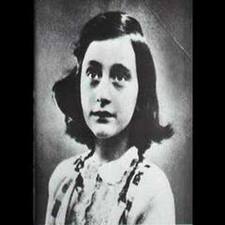
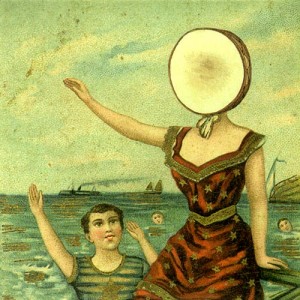
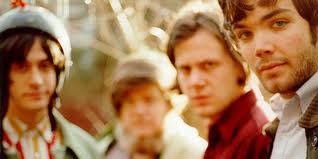
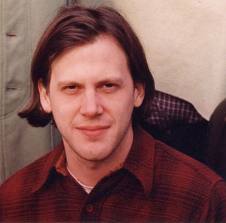




 The Other Death in the Family
The Other Death in the Family















